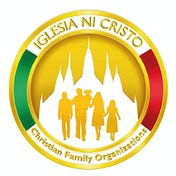Iglesia Ni Cristo
Religious
The Iglesia Ni Cristo (INC), or Church of Christ, began in the Philippines in 1914. Its formal registration took place on July 27 of that year under the guidance of Brother Felix Y. Manalo. From the start, the Church focused on aligning its teachings closely with the Bible. Early congregations prioritized structured worship, accurate biblical interpretation, and strong discipline among members. The first congregation was formed in Punta, Sta. Ana, Manila, quickly grew into neighboring areas of the capital. Within years, INC reached other provinces in Luzon and expanded to the Visayas and Mindanao regions. By the time Brother Felix Manalo passed away on April 12, 1963, the Church had established ecclesiastical districts across more than half of the Philippines.
Expanding Leadership and Reaching the World
After the death of Brother Felix Y. Manalo, Brother Eraño G. Manalo took over the leadership of the Church. As Executive Minister, he steered INC through significant growth and international outreach. In 1968, the Church set up its first congregations outside the Philippines in Honolulu, Hawaii, and San Francisco, California. The following years saw INC move into many parts of the world. In the 1970s, congregations were established in major cities across North America, including New York and Canada, as well as in Guam. In Europe, the first congregation was organized in London in 1972. Australia saw INC’s presence in the mid-1970s. Meanwhile, Hong Kong welcomed the Church in Asia in 1974, followed by Thailand in 1976 and Japan in 1977. Africa became part of the INC’s reach, with congregations in Nigeria and South Africa established in 1978.
The Church grew during the 1980s and reached Scandinavian countries and their neighbors. By the 1990s, INC had expanded into Latin America, including Guantanamo Bay, Cuba, and major cities like Rome, Jerusalem, and Athens. Entering the 2000s, INC reached South America, setting up worship groups in Brazil and Peru. By the time Brother Eraño passed away in 2009, the Church had expanded its presence to more than half of the world’s regions. Today, the Iglesia Ni Cristo includes members from 152 racial and ethnic backgrounds, with congregations in 168 countries and territories across six inhabited continents.
Core Beliefs and Practices
The Iglesia Ni Cristo teaches that there is only one true God, the Father, rejecting the doctrine of the Trinity. It recognizes Jesus Christ as the Son of God and humanity’s Savior. The Church believes the Bible alone is the basis for faith and practice. According to INC’s teachings, baptism, and Church membership are essential for salvation. INC members uphold unity in faith and administration, which they see as vital to remaining part of the true Church mentioned in the Bible. Members look forward to Judgment Day and believe in the promise of the New Jerusalem.
Church Governance and Organization
The Church is led by the Executive Minister, who oversees spiritual leadership, administration, and the general welfare of the members worldwide. The main administrative center is the Central Office in Quezon City, Philippines, supported by regional offices in the Americas, Europe, and Northeast Asia. Ecclesiastical districts group congregations regionally. This system helps coordinate worship services, ministry activities, and community programs. INC has built around 5,000 houses of worship worldwide, serving as places for spiritual gatherings and recognizable landmarks within their communities.
Worship Services and Children’s Ministry
INC holds worship services twice a week, usually on Thursdays and Sundays. These services include hymns, prayers led by Church officers, voluntary offerings, and sermons based on the Bible. Following biblical interpretation, men and women sit separately during worship. The Church also provides separate services for children up to 11 years old, using age-appropriate methods to teach faith. This helps children build a strong spiritual foundation early in life.
Humanitarian Work and Social Responsibility
The Iglesia Ni Cristo carries out humanitarian activities through the Felix Y. Manalo Foundation. Programs focus on health services, education, poverty relief, and emergency assistance. One of the Church’s significant outreach efforts is Lingap sa Mamamayan, or Aid to Humanity, which provides medical help, food, clothing, and other essential support to needy communities.
Recognitions and Major Events
In 2018, INC organized a charity walk that set a Guinness World Record for the largest charity walk event, with over 283,000 participants, surpassing its previous record of 175,000 participants in 2014. This achievement reflected its members' dedication and ability to collaborate on large-scale efforts. In 2022, the Philippine government honored the Felix Y. Manalo Foundation with the Banaag Award for its outstanding role in poverty reduction and community service worldwide.
Centennial Celebration and Facilities
On July 27, 2014, the Iglesia Ni Cristo celebrated its 100th anniversary with a large gathering at the Philippine Arena in Bulacan. This venue is among the world’s largest indoor theaters and serves as a meeting place for Church members from around the globe.
Portfolio: https://iglesianicristo.xyz/
